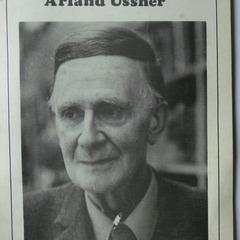Joseph Addison Quotes - Page 5

Joseph Addison, Richard Steele, Francis Prévost, Francis William Blagdon (1833). “The Spectator, in Miniature: Being the Principal Religious, Moral, Humourous, Satirical and Critical Essays, in that Publication Compressed Into Two Volumes”, p.212
Joseph Addison (2017). “Delphi Complete Works of Joseph Addison (Illustrated)”, p.2472, Delphi Classics
Joseph Addison, Sir Richard Steel (1858). “The Spectator”, p.317
Joseph Addison (1868). “The Works of Joseph Addison”, p.481
Joseph Addison, Richard Steele (1853). “The Spectator”, p.383
Joseph Addison, Sir Richard Steele (1854). “The Spectator: With a Biographical and Critical Preface, and Explanatory Notes ...”, p.371
Joseph Addison (2017). “Delphi Complete Works of Joseph Addison (Illustrated)”, p.5878, Delphi Classics
Joseph Addison (1860). “The works of Joseph Addison: including the whole contents of Bp. Hurd's edition, with letters and other pieces not found in any previous collection; and Macaulay's essay on his life and works”, p.427
Sir Richard Steele, Joseph Addison (1829). “The Tatler and the Guardian: Complete in One Volume, with Notes, and a General Index”, p.388
Joseph Addison (1712). “The Spectator”, p.53
Joseph Addison (1812). “The evidences of the Christian religion: with additional discourses on the following subjects, viz: Of God, and his attributes. The power and wisdom of God in the creation. The providence of God. The worship of God. Advantages of revelation above natural reason. Excellency of the Christian institution. Dignity of the Scripture language. Against atheism and infidelity. Against the modern free-thinkers. Immortality of the soul, and a future state. Death and judgment”, p.46
Joseph Addison, Sir Richard Steele (1822). “The Spectator: with notes and illustrations. In six volumes”, p.305
Joseph Addison, Richard Hurd (1811). “The Works of the Right Honourable Joseph Addison, a New Ed., with Notes”, p.364
Honor's a fine imaginary notion, that draws in raw and unexperienced men to real mischiefs.
Joseph Addison (1761). “Preface. Poems on several occasions. Rosamond. An essay on Virgil's Georgics. Cato. The drummer, or, The haunted house. Poemata. Dialogues upon the usefulness of ancient medals”, p.307
E'en the rough rocks with tender myrtle bloom, and trodden weeds send out a rich perfume.
Joseph Addison (1795). “Interesting Anecdotes, Memoirs, Allegories, Essays, and Poetical Fragments; Tending to Amuse the Fancy, and Inculcate Morality”, p.179
"Cato, A Tragedy". Play by Joseph Addison, 1713.
We are always doing something for posterity, but I would fain see posterity do something for us.
The Spectator no. 583, 20 Aug. 1714
Joseph Addison (1721). “The preface. Poems on several occasions. Rosamond. An opera. Notes on some of the foregoing stories in Ovid's Metamorphoses. An essay of Virgil's Georgics. Cato. A tragedy. Poemata. Dialogues upon the usefulness of ancient medals, especially in relation to the Latin and Greek poets. Three setts of medals illustrated by the ancient poets, in the foregoing dialogues”, p.278
Quoted in Colin Jarman The Guinness Dictionary of Sports Quotations (1990).






